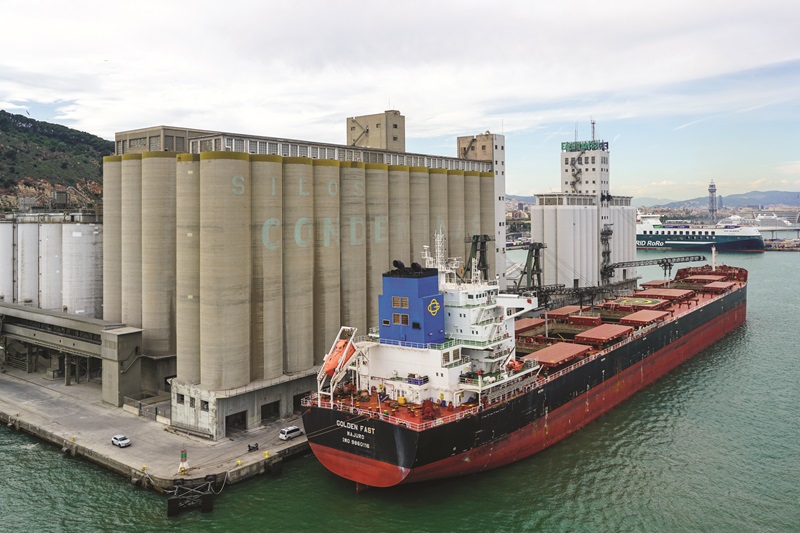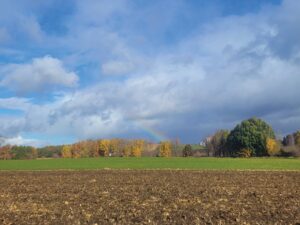European Union sustainability policies
How do they impact Ontario grain exports?

European Union legislation is taking aim at deforestation and biodiversity destruction by imposing import restrictions on grain grown on recently cleared land. A concern for grain exporters in Brazil and other regions of the globe, experts suggest Ontario grain growers and sellers have comparatively little to fear.
Logistical and transparency complications, as well as impacts on newly arable areas in Ontario’s northern farming regions, however, are a reality.
BIOFUEL-SPECIFIC REGULATIONS
Europe’s deforestation-focused restrictions apply to raw commodities and products derived from those commodities, such as ethanol. For the latter, a selection of the European Renewable Energy Directive reads as follows:
“Biofuels, bioliquids, and biomass fuels produced from agricultural biomass…shall not be made from raw material obtained from land with high-carbon stock, namely land that had one of the following statuses:
Wetlands, namely land that is covered with or saturated by water permanently or for a significant part of the year; Continuously forested areas, namely land spanning more than one hectare with trees higher than five metres and a canopy cover of more than 30 per cent, or trees able to reach those thresholds in situ; Land spanning more than one hectare with trees higher than five metres and a canopy cover of between 10 per cent and 30 per cent.”
As described by Rob Vierhout and Alain Steels—vice president of public affairs and sustainability director for biofuel manufacturer Alco, respectively—a cutoff date of January 1, 2008, also applies. Commodities used to create biofuel, namely corn, are by default in compliance with the deforestation regulation if produced on land already in arable production as of January 2008. This means commodities from Ontario farms are largely in compliance, and by extension, so is the ethanol exported to Europe from Alco’s production facility in Aylmer.
Even so, Vierhout and Steels say Alco is investigating ways corn growers can, with greater ease, deliver directly to ethanol production facilities. This would shorten the supply chain and make no-deforestation verification, as well as emissions and other European sustainability measurements, that much easier.
Kevin Norton, chief executive officer for Alco Canada, also believes Ontario farmers are in a good position regarding greenhouse gas and carbon requirements.
“When we look at the standard practices Ontario farmers are using, they’re far better than some of the default baseline values we’ve seen [from Europe],” he says.
ADDITIONAL DEFORESTATION REGULATIONS
For soybeans, more recently adopted European Union Deforestation Regulation bars imports from areas deforested after 2020, the definition of deforestation being the same as that described for biofuels.
Colin Richardson, export manager for Huron County’s Snobelen Farms, agrees that the Regulation’s cutoff date means land clearing in Ontario, most of which occurred many decades or over a century ago, will not negatively impact grain exports to the European bloc. There are some considerations, however, particularly for land being cleared in New Liskeard and the northern clay belt.
“Deforestation doesn’t necessarily mean clear- cut. For example, if you’re turning even a small woodlot to a pasture, that’s deforestation,” says Richardson, adding that European legislation also dictates livestock cannot be fed grain which has been grown on deforested land. From an exporter’s perspective, he thinks better mapping, data sharing, and avoiding shipments to Europe from at-risk areas should help mitigate compliance issues. Richardson says some exporters in the United States have already begun employing segmented shipping for this reason.
Improving logistical transparency and location-of-production information for Identity Preserve soybeans is one thing—for bulk commodities, it’s another game entirely.
Dana Dickerson, Grain Farmers of Ontario’s director of market development and sustainability, says the EU intention with the Deforestation Regulation is to target soybeans grown after clearing land in high-value nature ecosystems, like Brazil’s Amazon basin. The nature of international trade necessitates the bloc not to target one or more individual countries, though, meaning the legislation has to be applied broadly. Its wording is also very specific and detailed in an effort to reduce loopholes. The Regulation has created a very burdensome compliance environment for even the most compliant of export countries.
The question, says Dickerson, is how exporters can provide specific GPS coordinates for where a given batch of soybean originated and that the growing area is in compliance when the soybeans in question pass through one of 500 rural elevators, one or more aggregate terminals, loaded onto vessels which may or may not offload or top up at other terminals over varying lengths of time, before reaching a European port.
“This policy technically is already in law, but there’s an implementation phase-in period. The EU has already delayed it once, and they’re working to simplify it because there are so many companies that have said ‘we can’t make this work’,” Dickerson says. More generally, she adds electoral changes within the European Union have spurred a shift in focus—specifically, reassessments of environmental legislation pertaining to deforestation, biotechnology, and other areas.
“I also think, with the current dynamics of global trade, the EU and the UK are going to want to align with countries like Canada, which are reliable and dependable.”
FEWER BARRIERS IN UK
No longer part of the EU, the UK’s sustainability legislation poses similar market access challenges—albeit somewhat less onerous. Ed Barker, head of policy and external affairs for the UK Agricultural Industries Confederation, says the UK has “not followed Europe” on a whole range of environmental sustainability legislation.
“For what it’s worth, the UK has got its own proposed deforestation legislation, but it’s being delayed for quite a considerable period of time…Global trade volatility has also underlined how wise some of those initial policies were,” says Barker.
In the meantime, a general shift of preference toward North American soybeans has occurred, particularly in the United Kingdom. Other differences between the UK and the EU’s environment or environment-adjacent policies might provide further opportunities for Canadian grain growers—specifically, how the UK classifies gene-edited crop varieties.
“From an export point of view, there’s going to be more of an interest in what can be done in research and development. That’s something we’re getting quite excited about,” says Barker.
More generally, he says factors such as cost- of-production challenge, a very real issue for oilseeds and other products in the United Kingdom, as well as legislation creating self-imposed limits on production—such as nitrogen reduction requirements in mainland Europe—could translate into further market opportunities for Canadian farmers. •


























